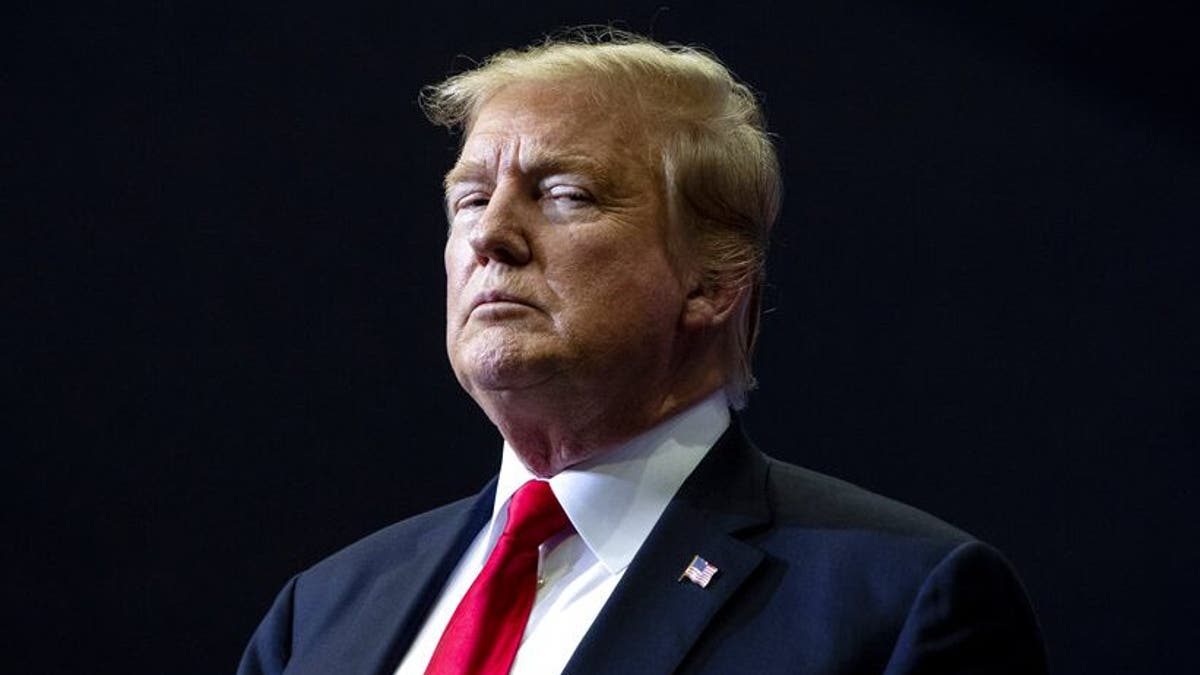
President Donald Trump holds a campaign rally at Van Andel Arena in Grand Rapids, Mich., on Thursday, March 28, 2019. (Cory Morse/MLive.com/The Grand Rapids Press via AP)
President Trump can do one simple thing that would, with one stroke of his pen, save little businesses across America, bring fairness to a politically incorrect industry that voted for him and stop another attempt to bankrupt America’s gun manufacturers.
Trump can approve a reform to modernize our export-control language so that it includes the U.S. ammunition and firearms industry. All the other industry sectors that were involved have already benefitted from this process, when their oversight for export was moved from the U.S. Department of State to the import-export experts at the U.S. Department of Commerce.
The process for doing this was actually begun in the Obama administration, but they decided at the last minute to exclude America’s firearms industry for political reasons.
Currently, Sen. Bob Menendez, D-N.J., has a hold on the publication of this final rule, but he used this Senate procedure too late, after the formal 30-day notice ended, so the Trump administration can approve the rule.
OK, this might sound like a wonky topic that isn’t a big deal, but it is a problem that is crushing small businesses and making U.S. industry less competitive on the world stage, which is costing American jobs.
Incredibly, because this industry is now regulated by the State Department, the federal government is telling gunsmiths they must pay an annual $2,250 fee to comply with the Arms Export Control Act. This Act requires any business that updates, improves or modifies a firearm (since it’s considered to be a “defense article”) to register with the State Department as a “manufacturer” of a “defense article” (guns) and pay $2,250 every year.
The big manufacturers can eat that fee, but most gunsmiths are small, part-time businesses that specialize in fixing hunting and sporting-related firearms. They can’t afford to pay this fee.
Since this industry is regulated by the State Department, gun and ammunition manufacturers must also get congressional approval for all foreign orders over $1 million. If, say, an American gun company wants to compete to sell more than $1 million in rifles to Germany or another NATO member, it must first get State Department approval and then a thumbs up from Congress. This congressional review is often held up by anti-gun Democrats in the Senate, who like to make it impossible for gun companies to compete for foreign contracts.
Other industries had the same issue before the reform process moved their oversight to the Commerce Department. The gun industry is being singled out by Democrats in Congress because these politicians see this as another way to restrict, smother and punish the gun industry.
The latest excuse – word is this is what’s stalling approval from the Trump administration – is this reform is being tangled in the 3D gun-printing dispute.
The State Department had previously ruled that gun schematics that can be used by 3D printers to make gun parts can’t be posted on the Internet, as a non-U.S. citizen could conceivably download them and that would be an illegal export of a “defense article.”
Democrats are using this as an excuse to stop this reform from including the gun and ammo industry. They can make that sound like a reasonable objection to anyone who doesn’t understand that what we’re talking about are technologies for commonly owned rifles, handguns and other small arms and ammunition that hunters and those who enjoy the shootings sports use and have used for generations.
CLICK HERE TO GET THE FOX NEWS APP
This was discussed March 26 at the House Oversight and Investigations committee. Rep. Norma J. Torres, D-Calif., spoke at the hearing and gave the anti-gun line by blaming U.S. gun manufacturers for arming criminal gangs, for not caring about human rights issues and more, as she objected to the rule change.
Trump can and should end this unfair debate. Doing so won’t end oversight of exports. It would simply put it in the hands of the Commerce Department, which already consults the State Department on any defense-related approvals it is uncertain about.
This column was originally featured in the Washington Times.








































